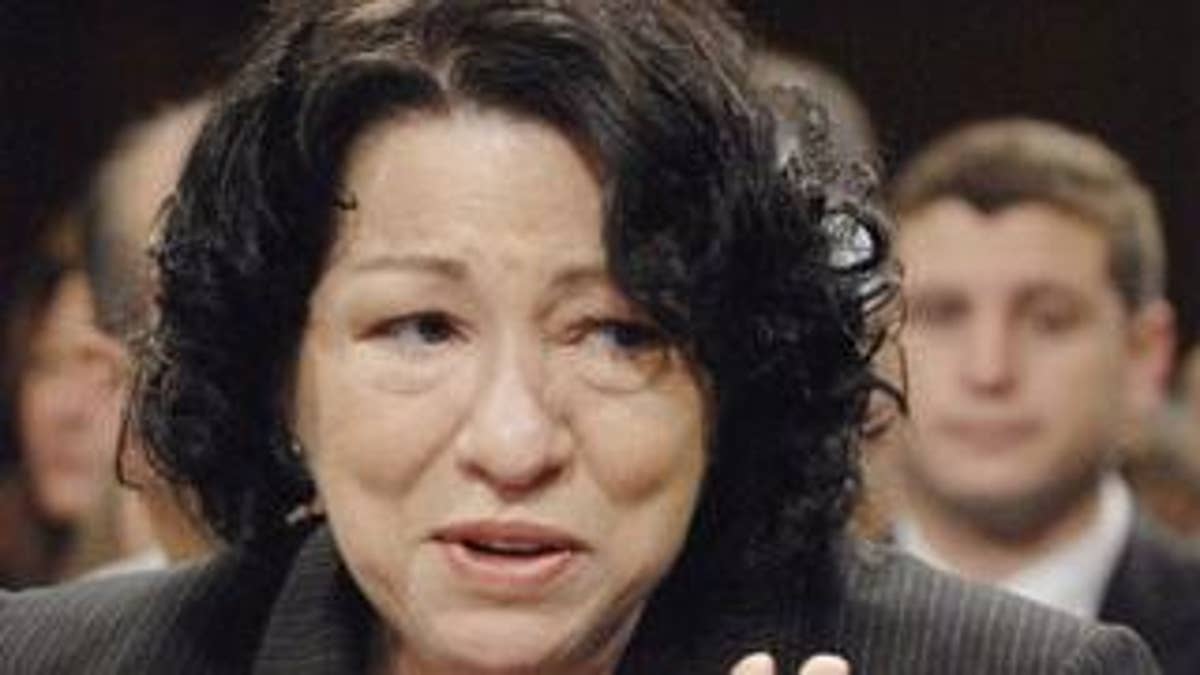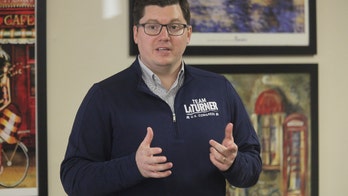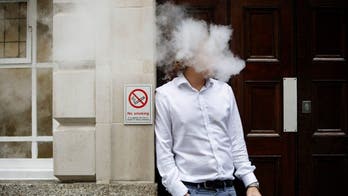
The shadow of the old Arlen Specter emerged Wednesday when he echoed Republicans' concerns that Sonia Sotomayor may say one thing at her confirmation hearing and do another as the next Supreme Court justice.
Sen. Specter, who recently switched parties from Republican to Democrat, expressed frustration over the nominee's refusal to give specific answers on a number of legal issues and court rulings.
"Is there anything the Senate or Congress can do if a nominee says one thing seated at that table and does something exactly the opposite once they walk across the street?" he asked Sotomayor Wednesday during Day 3 of her confirmation hearings as she seeks to become the first Hispanic to sit on the high court.
Sotomayor, a federal appellate court judge, repeatedly declined to give her view on abortion, but expressed dismay that her former boss would say that he "guarantees" she'll support abortion rights.
"I know for a fact I never spoke to him about my views on abortion, frankly, on my views on any social issue," Sotomayor said in response to a question from Sen. John Cornyn, R-Texas.
Cornyn quoted Sotomayor's former boss, George Pavia, of Pavia & Harcourt law firm, saying he thought support of abortion rights would be in line with Sotomayor's generally liberal instincts.
"'I can guarantee she'll be for abortion rights,'" Cornyn quoted Pavia as saying.
"I have no idea why he's drawing that conclusion," Sotomayor said, defending her record and noting that she has upheld the application of the Mexico City policy, which banned the U.S. government from using funds for abortion-related activities in clinics abroad. President Obama has since ended that policy.
She was no more forthcoming on the issue when pressed by Specter, an abortion rights supporter. Asked whether Roe was a kind of "super-duper precedent," she didn't respond directly.
Sotomayor -- who worked as a corporate litigator for Pavia & Harcourt from 1984 to 1991 -- said during day three of her confirmation hearing that her record proves she has "ruled according to the law in all cases addressed to the issue of termination of abortion rights."
She said her work as a judge for 17 years does not show any "liberal instincts" in the cases she officiated over.
"If he was talking about the fact that I served on a particular board that promoted equal opportunity for people, the Puerto Rican Legal Defense and Education Fund, then you could talk about that being a liberal instinct in the sense that I promote equal opportunity in America and the attempts to assure that," Sotomayor said.
The federal appellate judge also told members of the committee that she was never asked by Obama for her views on "any specific legal issue."
Sen. Tom Coburn, R-Okla., a staunch abortion opponent, also grilled Sotomayor with questions about hypothetical cases related to abortion.
"I can't answer ... because I can't look at it in the abstract," Sotomayor said.
Coburn posed a case in which a woman wanted to abort a 38-week fetus because it was found to have spina bifida, which can cause paralysis and is often associated with brain damage.
"I probably couldn't opine because I'm sure that situation might well arise before the court," the judge said.
Coburn also pressed Sotomayor for her views on gun control, asking the judge whether a person has a fundamental right to possess firearms and a right to self-defense.
"What we do is different than the conversations citizens have about what they want the law to do," Sotomayor said. "It's not that we make a broad policy choice and say this is what we want."
"You don't rule to please any crowd, you rule to get the law right under its terms," she continued.
Cornyn opened Wednesday's confirmation hearing by hammering at Sotomayor's explanation that she was following "legal precedent" when she ruled against Connecticut firefighters in the case Ricci vs. DeStefano -- a ruling overturned last month by the U.S. Supreme Court.
The judge had dismissed the claim of white firefighters in New Haven, Conn., who alleged racial discrimination over the city's decision to scrap a promotions exam after too few minorities did well. The topic consumed much of the questioning in Tuesday's question and answer session.
"To the extent that a particular panel considers that an issue has been decided by existing precedent, that's a question that the court above can obviously revisit, as it did in Ricci, where it looked at it and said, 'Well, we understand what the circuit did, we understand what existing law is, but we should be looking at this question in a new way,'" Sotomayor said of the decision reversed by the Supreme Court.
Sotomayor was also also forced to defend a past speech in which she said, "Whether borne from experience or inherent physiological or culture differences, a possibility I abhor less or discount less than my colleague...our gender and national origins may and will make a difference in our judging."
When Cornyn pressed her for a direct answer on whether physical criteria affected one's ability to judge, Sotomayor said, "I'm not sure exactly where that would play out, but I was asking a hypothetical question...I was saying, look, we just don't know."
"What I was saying is: let's ask the question...Ignoring things and saying, you know, it doesn't happen isn't an answer to a situation...Consider it as a possibility and think about it. But I certainly wasn't intending to suggest that there would be a difference that affected the outcome," she continued.
Sotomayor also refused to renounce her "failed" words that a "wise Latina" woman would reach a better conclusion than a white man in a court ruling.
The judge said that she "regrets" that her remarks in a 2001 speech have been misconstrued by some people, repeating that "my words failed. they didn't work."
"I understand that some people have understood them in a way that I never intended. And I would hope that, in the text of the speech, that they would be understood," Sotomayor told Cornyn.
Republicans on the Senate Judiciary Committee have said they are not convinced by Sotomayor's declaration a day earlier that no one racial, ethnic or gender group has an advantage in sound judgment.
"Frankly, I wasn't persuaded," Sen. Jon Kyl, R-Ariz., told FOX News. "She didn't repudiate what she had said."
Republicans on the committee are using Sotomayor's confirmation hearing to raise doubts about her fairness, while Democrats are portraying her as a model jurist.
"She shows more judicial modesty than judicial activism," Sen. Amy Klobuchar, D-Minn., told FOX News. "She's not a judicial activist."
Sotomayor told Sen. Al Franken, D-Minn., on Wednesday that "judicial activism" is not a term she ever uses.
"I don't use the term because I don't describe the work that judges do in that way," she said.
Under questioning Tuesday, Sotomayor tried to take away one line of Republican attack when she distanced herself from the man who nominated her, President Obama.
Asked whether she shared Obama's view -- stated when he was a senator -- that in some cases, the key determinant is "what is in the judge's heart," Sotomayor said she does not.
"I wouldn't approach the issue of judging in the way the president does," she said. "Judges can't rely on what's in their heart. They don't determine the law. Congress makes the laws. The job of a judge is to apply the law."
Sen. Lindsey Graham, R-S.C., said he could end up voting for Sotomayor but wants to make sure she is the judge with what he called a moderately liberal record, not a liberal activist.
"That's what we're trying to figure out -- who are we getting here?" he said.
Democrats clearly enjoyed being on the other side of the confirmation process, defending a Democratic nominee.
"When we asked questions of the white male nominees of a Republican president, we were basically trying to ... make sure that they would go far enough in understanding the plight of minorities, because clearly that was not in their DNA," Sen. Dick Durbin, D-Ill., said.
"The questions being asked of you from the other side primarily are along the lines of, will you go too far in siding with minorities?" Durbin said.
When the committee finishes its first round of questioning, it will go into the customary closed session to discuss the FBI report on Sotomayor and other personal matters.
The 19 senators can then take up to an additional 20 minutes each to question Sotomayor, although Sen. Patrick Leahy, D-Vt., the committee chairman, advised his colleagues Tuesday that they don't need to use their entire allotment.
Leahy has voiced confidence that Sotomayor will be confirmed, and with some Republican support. He confessed Wednesday that as the hearing dragged on, he'd stopped listening at times to the exchange and had been daydreaming about his farmhouse in Vermont.
Click here for the latest FOXNews.com stories and videos on Sonia Sotomayor.
The Associated Press contributed to this report.




